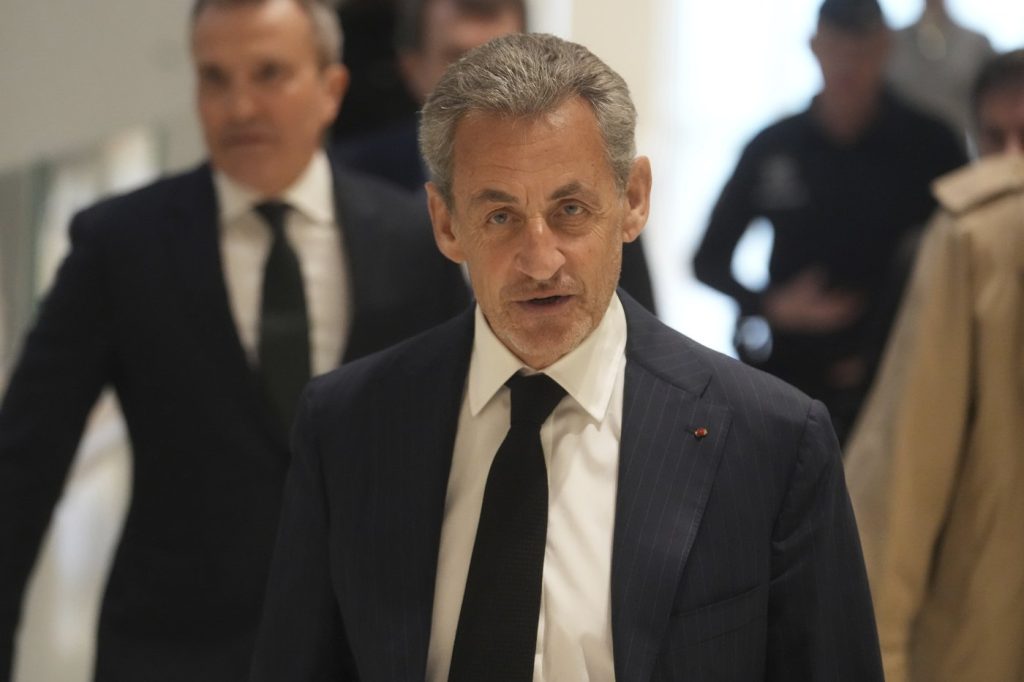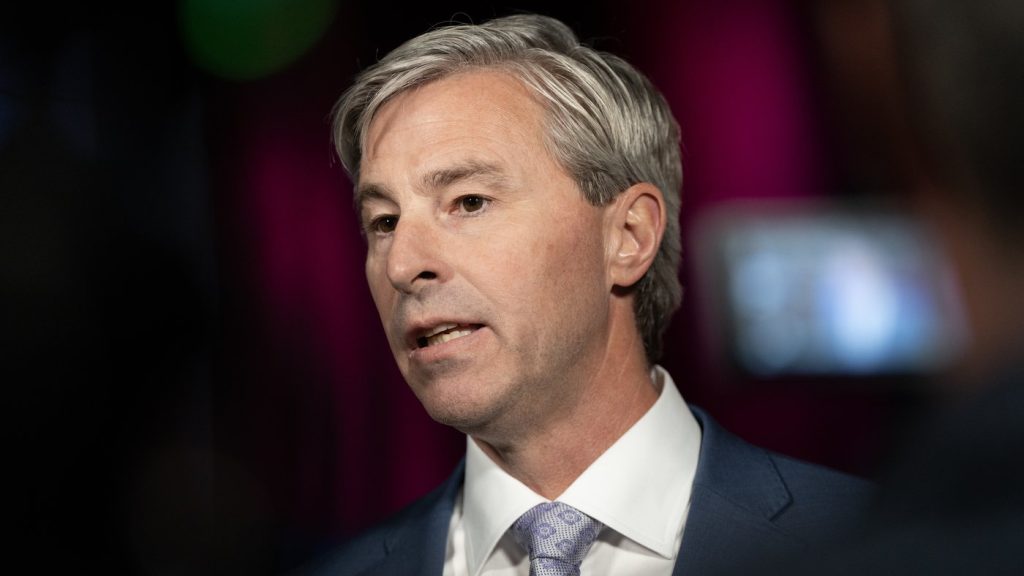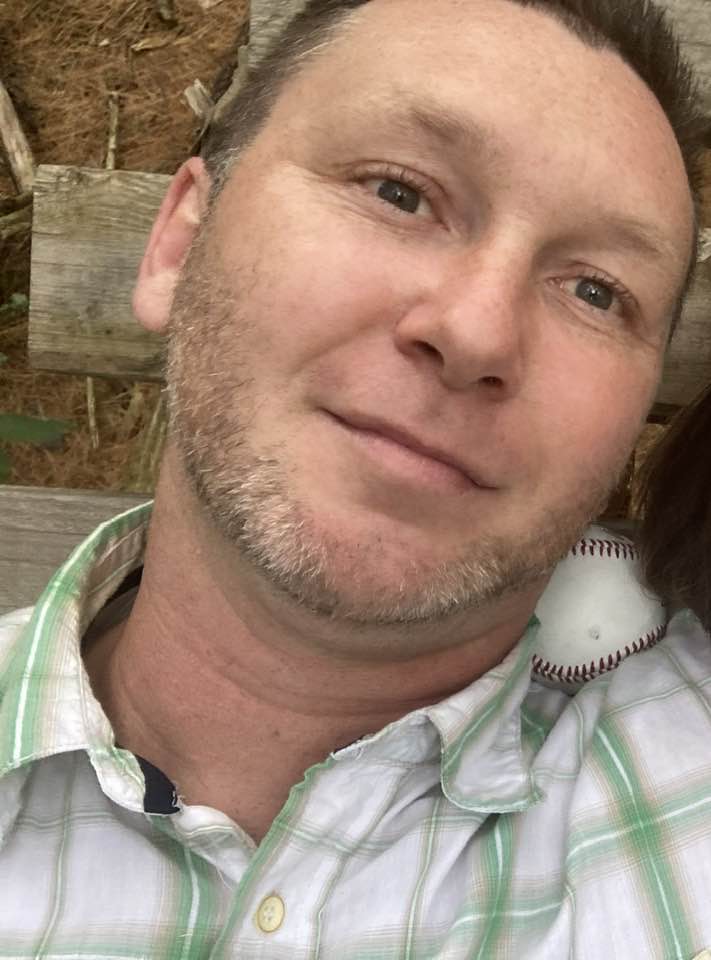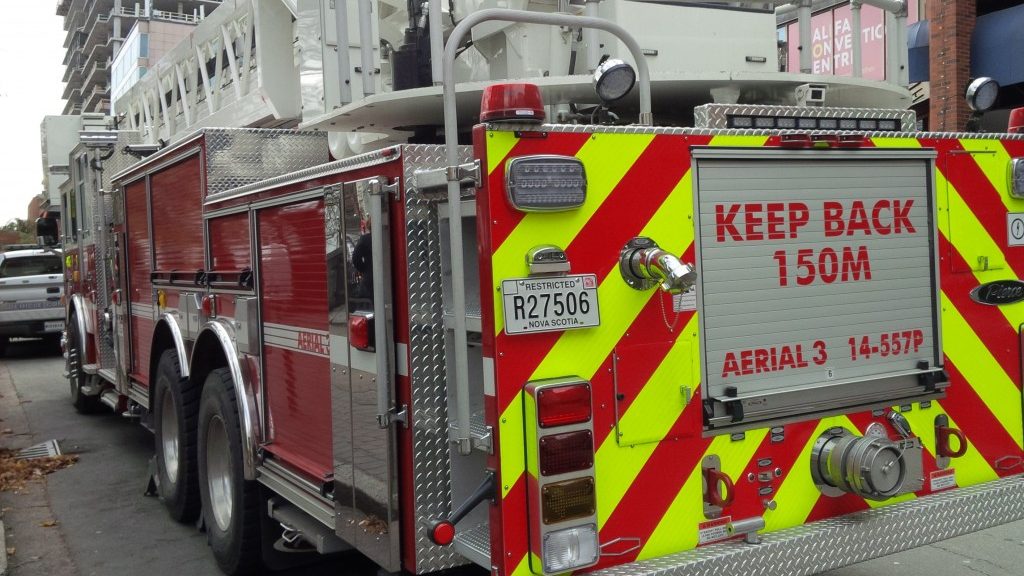Former French President Sarkozy denounces ‘plot’ at trial over alleged campaign funding by Libya

Posted Jan 9, 2025 01:55:51 PM.
Last Updated Jan 9, 2025 02:01:45 PM.
PARIS (AP) — Former French President Nicolas Sarkozy vigorously denounced a “plot” he said was staged by “liars and crooks” on Thursday at a Paris trial over the alleged illegal financing of his 2007 presidential campaign by the Libyan government led by former leader Moammar Gadhafi.
In his first remarks since the trial started on Monday, Sarkozy, 69, said “You will never find one Libyan euro, one Libyan cent in my campaign.”
The former French president, who served from 2007 to 2012, is facing charges of passive corruption, illegal campaign financing, concealment of embezzlement of public funds and criminal association, punishable by up to 10 years in prison.
The trial is scheduled to run until April 10, with a verdict expected at a later date.
Sarkozy, a lawyer by training, argued “groups of liars and crooks” including the “Gadhafi clan” have fed allegations to investigators. Speaking nervously, but with a strong voice and waving his arms, Sarkozy denounced “a plot.”
The case emerged in March 2011, when a Libyan news agency reported that the Gadhafi government had financed Sarkozy’s 2007 campaign.
“Revelations (from Libya) about the alleged financing of my campaign came a few hours after my statement that ‘Gadhafi must go,’” Sarkozy said.
Sarkozy was one of the first Western leaders to push for a military intervention in Libya in 2011, when Arab Spring pro-democracy protests swept the Arab world. Gadhafi was killed by opposition fighters in October that same year, ending his four-decade rule of the North African country.
“What credibility can be given to such statements marked by the seal of vengeance?” Sarkozy asked.
He also said that a key document said to be a note from the Libyan secret services, mentioning Gadhafi’s agreement to provide Sarkozy’s campaign 50 million euros ($51.4 million) in financing, was fake.
French investigative magistrates said in 2016 the document has all the characteristics of authenticity, although there is no definitive evidence that such a transaction took place.
“I want you to feel the indignation, sincerity and anger,” Sarkozy told the court. “There is no corruption money because there was no corruption of the (presidential) candidate.”
French investigators scrutinized several trips to Libya made by people close to Sarkozy, then the interior minister, between 2005 and 2007, including his chief of staff Claude Guéant.
Sarkozy noted that weeks after he arrived in office in 2007, he was able to make a deal with Gadhafi to release five Bulgarian nurses and a Palestinian doctor. The medics had twice been sentenced to death in Libya for allegedly infecting hundreds of children in the coastal city of Benghazi with HIV in the late 1990s. The charges were widely denounced abroad as false.
“If you don’t discuss with Gadhafi, you don’t liberate the nurses!” Sarkozy said, describing his “pride” in that achievement.
During Sarkozy’s visit to Tripoli the day after the release, France and Libya signed wide-ranging cooperation agreements in areas including defense, health, the fight against terrorism and civilian nuclear power.
The trial involves 11 other defendants, including three former ministers.
Franco-Lebanese businessman Ziad Takieddine, accused of having played the role of intermediary, has fled to Lebanon and did not appear at the Paris court.
Another co-defendant, Gadhafi’s former chief of staff and treasurer Bashir Saleh, did not come to the trial. Saleh sought refuge in France during the Libyan civil war, then moved to South Africa, where he survived a shooting in 2018, before settling in the United Arab Emirates.
Sarkozy has been convicted in two other scandals, but the Libyan case appears to be the one most likely to significantly affect his legacy.
France’s highest court, the Court of Cassation, last month upheld a conviction against Sarkozy of corruption and influence peddling while he was head of state. He was sentenced to one year under house arrest with an electronic bracelet. The case was revealed as investigative judges were listening to wiretapped phone conversations during the Libya inquiry.
In February last year, an appeals court in Paris found Sarkozy guilty of illegal campaign financing in his failed 2012 reelection bid.
Sylvie Corbet, The Associated Press








